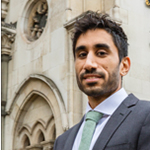 Chris Wormald, senior civil servant at the Department of Health, has suggested that patients should prove their eligibility for NHS care by showing their passport to receive treatment. The proposal was presented as a solution to “health tourism,” a problem which may be responsible for around 0.5% of the total NHS spend.
Chris Wormald, senior civil servant at the Department of Health, has suggested that patients should prove their eligibility for NHS care by showing their passport to receive treatment. The proposal was presented as a solution to “health tourism,” a problem which may be responsible for around 0.5% of the total NHS spend.
The cost of deliberate abuse of the NHS in this way is estimated at around £200m per year. This is a cost that the NHS can’t afford. Recovery of such money, however, is itself expensive. Passports do not confer NHS eligibility. The issue creates intrigue, discussion, and controversy. Intentionally so.
This week, in the days leading up to the Autumn Statement, the media was dominated by the same message; passports for patients, and the morality and pragmatism of such an endeavour. At the end of an unpredictable, un-poll-able and bizarre 2016, two days before its most critical funding decisions were made, we were denied an honest debate about NHS finances. The spotlight was diverted to the newly familiar rhetoric regarding immigrants, outsiders, the non-contributors, and the non-entitled. The smokescreen won. The Autumn Statement pledged no extra money for the NHS.
NHS funding increases are about to drop from 3.8% this year to 1.4% next year and 0.3% in 2018-19 with that final year being the first ever that we will see a per capita fall in NHS spend. The next few years are unsustainable. There is a palpable fear that basic levels of safety are no longer manageable. There is little suggestion that the Government recognise this, let alone have a strategy for remedying it.
“We are providing £10 billion of extra funding to the NHS,” repeated Prime Minister May in Parliament this week, despite Dr Sarah Wollaston, Conservative MP, and the Health Select Committee she chairs, revealing that the real figure sits at around £4.5bn. The definition of “extra” remains controversial at best. By 2020 the NHS deficit will be £30bn. There is no slack left in the system. The only thing left to cut is care.
The concept of a nationally provided, tax funded health service, free at the point of use is one that resonates deeply with the British public; an ideology which has so far survived politics and generations. Our NHS is something we treasure and value enormously, one we see the importance of and are so grateful for when it gives back to the ones we love. So how, in this time of political revolution, where the vote is driving change with unprecedented voracity, is the voice of the people not being heard? One explanation is simple—we can only choose when we are given the choice. We can only answer the questions we are asked. We are not being asked whether we want to fund the NHS safely. That decision has been made. We are being asked what we think about passports.
Amar Mashru is a junior doctor specialising in Emergency Medicine. He works in the NHS.
Competing interests: No further interests declared.
